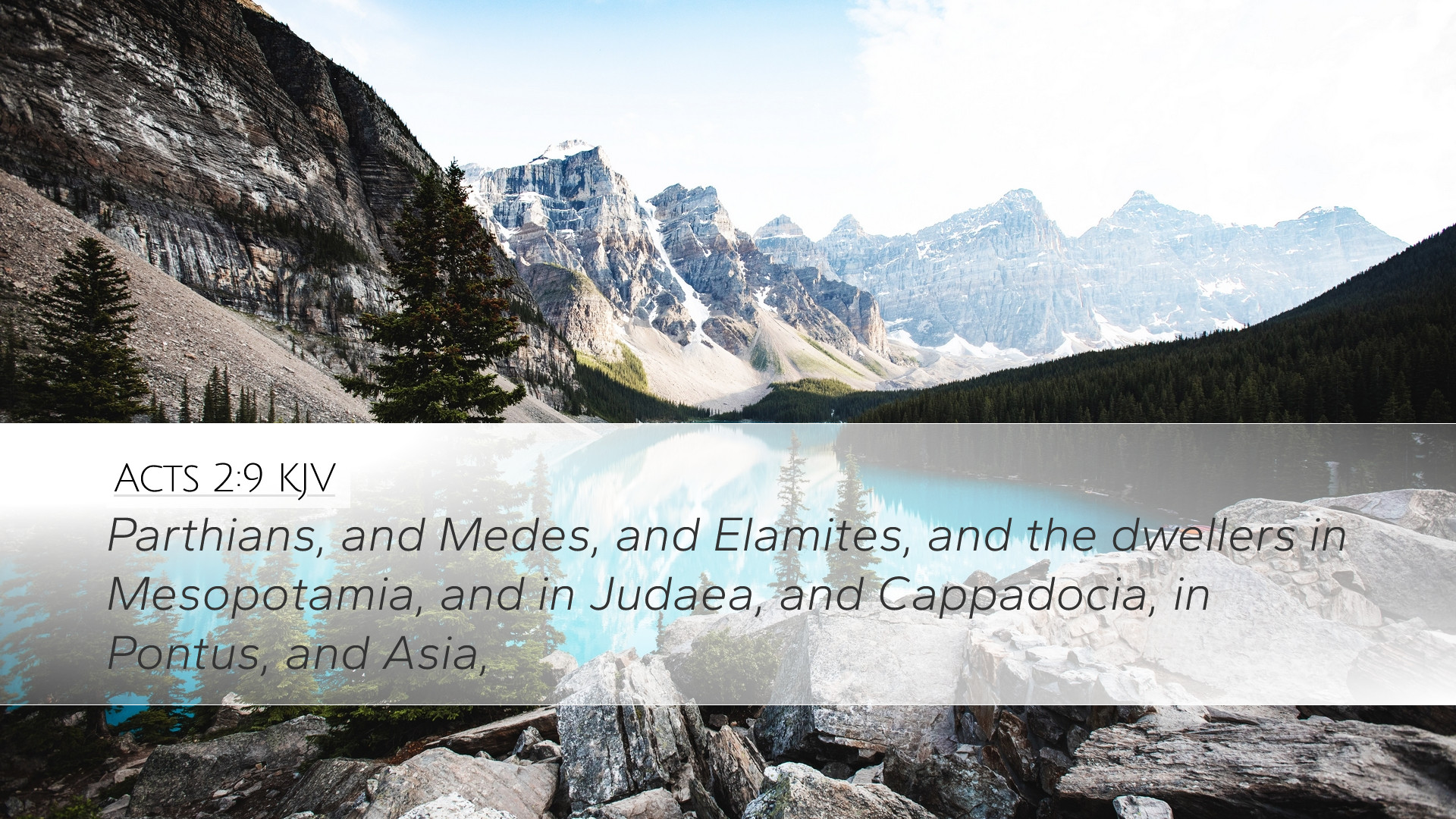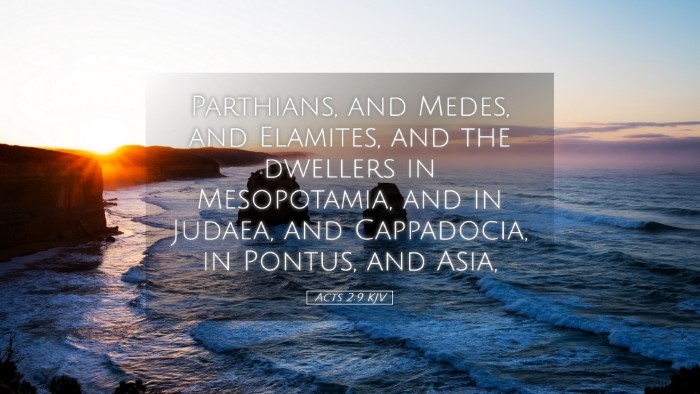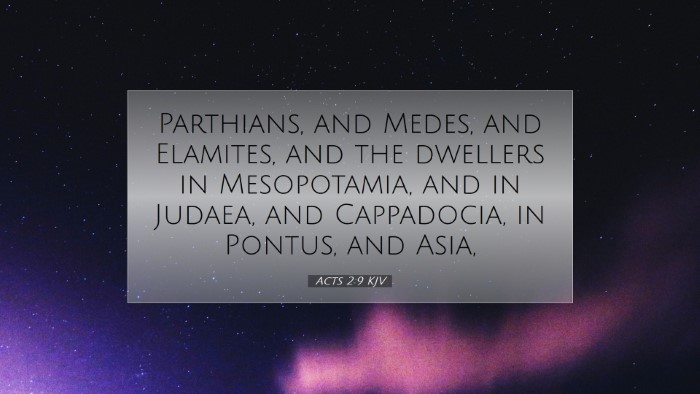Commentary on Acts 2:9
Verse Text: “Parthians, and Medes, and Elamites, and the dwellers in Mesopotamia, and in Judea, and Cappadocia, in Pontus, and Asia,”
Introduction
Acts 2:9 recounts the diverse groups of people present at Pentecost who were witnesses to the miraculous outpouring of the Holy Spirit. This moment is significant, not only for its extraordinary nature but also for its demonstration of the universal reach of the Gospel. The commentary draws insights from established public domain sources including Matthew Henry, Albert Barnes, and Adam Clarke, illuminating the implications of this verse for understanding early Christianity's mission.
Diversity of the Audience
Geographical Significance: The presence of Parthians, Medes, and Elamites signifies the dispersion of Jews across the known world. The variety of nationalities underscores the inclusive nature of the Christian message.
- Parthians: Located in modern-day Iran, they were known for their conflicts with the Romans.
- Medes: Another group from modern Iran, indicative of ancient roots and cultural significance.
- Elamites: Referring to people from the region of Elam, also south of modern Iran.
- Mesopotamians: This area, known as the cradle of civilization, brings to attention the historical context of the Gospel.
- Judeans: Representatives from the local region, demonstrating the close connection to Jesus' ministry.
- Cappadocians: Located in central Asia Minor, they represent the wider reach in the Roman provinces.
- Pontians and Asians: These terms refer to broader regions encompassing diverse peoples and cultures.
Theological Implications
Universal Appeal: The verse emphasizes that the Holy Spirit empowers believers to transcend cultural and linguistic barriers. As noted by Matthew Henry, this event signifies the dawn of the Gospel’s outreach, fulfilling Jesus' command to make disciples of all nations (Matthew 28:19).
Cultural Relevance: Commentators like Albert Barnes highlight the significance of the specific mention of these groups. The inclusion of varied nationalities reflects God's intention to gather a people from every tribe and tongue. This aspect is vital for understanding the Great Commission's implications in the life of the Church.
Role of the Holy Spirit
Acts 2:9 occurs during the feast of Pentecost, a harvest festival which, in a spiritual sense, also represents the gathering of souls from diverse backgrounds. Adam Clarke emphasizes that the Holy Spirit's arrival was more than an empowering event; it marked the birth of the Church with a mission oriented towards all nations.
Empowerment and Mission: The miraculous speaking in tongues connects directly to Acts 1:8, where Jesus commissions His disciples to be witnesses “to the ends of the earth.” This experience is foundational, illustrating both the empowerment by the Spirit and the Church’s mission as it is fulfilled in real-time.
Historical Context
Understanding the historical background of these groups lends credence to the text. Matthew Henry points out that many of these regions were formerly major powers and had significant historical and cultural relevance at the time of Christ, reflecting the expansive reach of the Roman Empire and, by extension, the early Church’s spread.
Practical Application
Embracing Diversity: For contemporary pastors and theologians, this verse serves as a reminder of the Church's call to embrace diversity within its communities. As the Holy Spirit unites believers across cultural lines, modern congregations are encouraged to reflect this inclusivity.
Cultural Engagement: Acts 2:9 challenges churches today to engage meaningfully with different cultures and languages, fostering an environment where the Gospel can flourish in multiple contexts. Albert Barnes emphasizes that the Holy Spirit’s work defies human barriers, urging believers to reach out to their local and global communities.
Conclusion
Acts 2:9 encapsulates a pivotal moment in Christian history, emphasizing the universality of the Gospel message. The diversity of those gathered at Pentecost underscores God's intent for all nations to be partakers in His redemptive plan. The rich insights from public domain commentaries inform our understanding and call believers to action today, encouraging us to embrace the mission with a spirit of unity and diversity.


